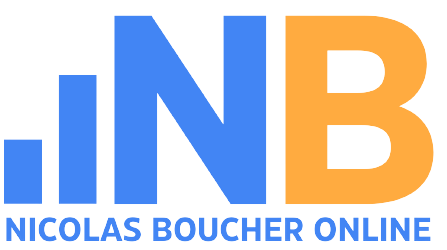Do you use levers to improve cash?
For any business, cash flow is the lifeblood that keeps the operations running smoothly.
As a finance professional, it’s crucial to know the levers that can be pulled to improve cash flow and ensure the company’s financial health.
In this blog post, we will explore nine powerful levers that can be used to improve cash flow.
Table of Contents
Top 9 Levers to Improve Your Cash Flow
Here are the essential 9 levers to improve your cash flow.
#1: Sales
Improving sales can be a powerful lever to improve cash flow.
Therefore, negotiating shorter payment terms or down payments with clients can help speed up cash inflows.
Additionally, reducing the lead time to close deals can also help bring in cash faster.
#2: Procurement
Procurement can also play a vital role in improving cash flow.
As a result, avoiding down payments and pushing payment terms as far as possible can help keep cash in the business for a long time.
#3: Project
Managing cash flow at a project level can help ensure that projects don’t drain the business’s cash reserves.
Therefore, by computing the cash balance of each project and planning cash inflows and outflows, the business can stay on top of cash management.
#4: Collection of Overdues
Automating the dunning process and escalating significant collection issues to management and key account managers can help ensure that outstanding payments are collected in a timely manner, improving cash inflows.
#5: Inventory
Monitoring inventory levels against forecasted sales and reducing lead time, optimizing stock buffers, and reducing delays can help keep inventory-related cash outflows in check.
#6: Finance
Improving finance-related processes, such as automating reporting, improving understanding of cash flow statements, bringing transparency to management, escalating collection issues, and using factoring to accelerate cash payments from receivables, can help improve cash flow.
#7: Sales Administration
Optimizing the process between a cash milestone achievement and the issuance of the debit note to the client can help speed up cash inflows from sales.
#8: Management
Management can play a vital role in improving cash flow.
Here is how:
- Translating cash flow objectives into the team and individual objectives
- Putting cash on the management reviews agenda
- Following up on cash as a key performance indicator
- Also, delaying investments can help keep cash in the business
#9: Culture
Improving the company’s culture around cash management can also help improve cash flow.
In other words, communicating the importance of cash flow, explaining how everyone in the organization can contribute, and repeating the message regularly can help instill a culture of cash management.
Bonus Tips
- Manage overhead costs by reviewing expenses regularly, negotiating with suppliers, and encouraging employees to be mindful of expenses.
- Leverage technology by automating processes, implementing an online payment system, using inventory management software, and using cloud-based services.
- Forecast cash flow using historical data, considering different scenarios, and updating the forecast regularly.
The Bottom Line – Utilize The Levers to Improve Cash
Improving cash flow is critical to the success of any business.
Therefore, by pulling these nine levers and implementing best practices for cash management, businesses can achieve a healthy cash flow and position themselves for long-term success.
Additionally, managing overhead costs, leveraging technology, and forecasting cash flow can also help improve cash flow.
By staying on top of cash flow management and continuously looking for ways to improve, businesses can ensure that they have a solid financial foundation for the future.
Above all, do you want to become an independent finance leader? Then, this is the perfect course for you! You will transform your career in no time and increase your income!
Key Takeaways
- Effective cash flow management is essential for business sustainability and growth.
- Utilize levers such as sales negotiation, procurement optimization, project-level cash flow monitoring, overdue collections management, and inventory control.
- Streamline finance processes, optimize sales administration, and align management decisions to improve cash flow.
- Foster a cash-focused culture throughout the organization to enhance cash flow awareness and responsibility.
- Manage overhead costs, leverage technology, and regularly forecast cash flow to maintain a robust financial foundation.
FAQ
1. Why is cash flow management crucial for businesses?
- Cash flow ensures a company’s ability to meet its financial obligations, fund operations, and pursue growth opportunities. Effective management is vital for stability and success.
2. How can sales negotiation impact cash flow?
- Negotiating shorter payment terms or securing down payments from clients accelerates cash inflow, enhancing liquidity for the business.
3. What role does procurement play in cash flow improvement?
- Efficient procurement involves avoiding down payments and extending payment terms, effectively preserving cash within the business.
4. How can businesses optimize inventory to improve cash flow?
- Monitoring inventory against sales forecasts, reducing lead times, and optimizing stock buffers prevent excessive cash outflows tied to inventory.
5. Why is fostering a cash-focused culture important?
- Instilling a culture of cash management encourages all employees to contribute to cash flow improvement and raises awareness of its significance throughout the organization.















